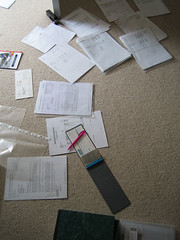Here are six keys that I have found to be useful:
1. Organize your day into time segments associated with specific tasks. Look at the specific tasks that allow you to both manage your consultancy and keep it growing. Here are some tasks that I have found to be necessary in my consultant work: Accounting, Organizing, Copywriting (including article and blog writing), Phone Calls, Letter Writing (including e-mailing), and Meetings.
2. Associate the time of day which you work best on each task. For example, I don't like to end my day with a disorganized desk so Organizing would be the last task I will do. The beginning of my day will be devoted to writing blogs and articles. During that time I tend to be fresher, more alert, and more creative. I allow time for Phone Calls during the day integrated with time set aside for Meetings. Letter Writing and Accounting are tasks that I do two or three times a week as needed. I periodically allow time for Letter Writing in the morning after Copywriting and an hour in the evening for Accounting before Organizing.
3. Check your e-mail during the time during the day that you would start your Phone Calls task. Follow up as needed or "star" the item for later follow up.
4. Set up a form to capture the essence of the conversations you have during the day. You need to capture the date, the person, the phone number, and the conversation. Just write it down when the conversation has ended. If you have a computer application to record the conversation, do it later.
5. Learn to use the keyboard instead of being a slave to the mouse. Use keyboard shortcuts for opening Microsoft Explorer (winkey key + E); to bring the desk top of other windows (winkey + D); and to minimize all windows (winkey +M). Use Ctrl + A to select all text; Ctrl +X, to cut selected items; and, Ctrl + V to paste selected items.
6. Have a specific time to end your day. You need time for Rest, Reflection, and Rejuvenation. Keep the three Rs in mind always. Do not allow yourself to be burned out. Keep stress at a minimum.Use it to spur yourself to greater achievement.
When Organizing, be sure to prepare for next day. Do not retire for the evening until this is done.
Do you have some keys that you have found to be effective?
Leave your comments below.







